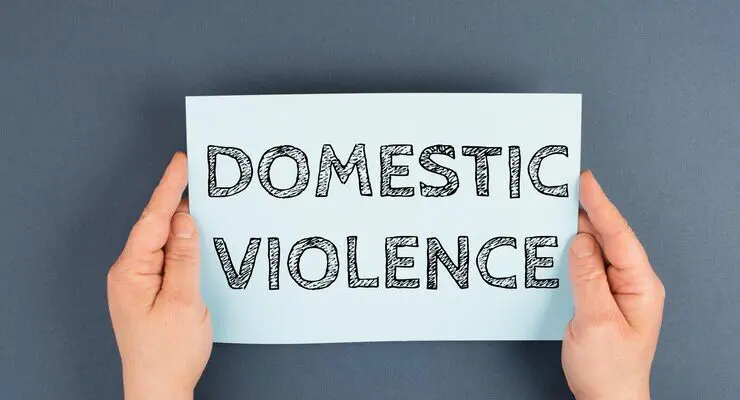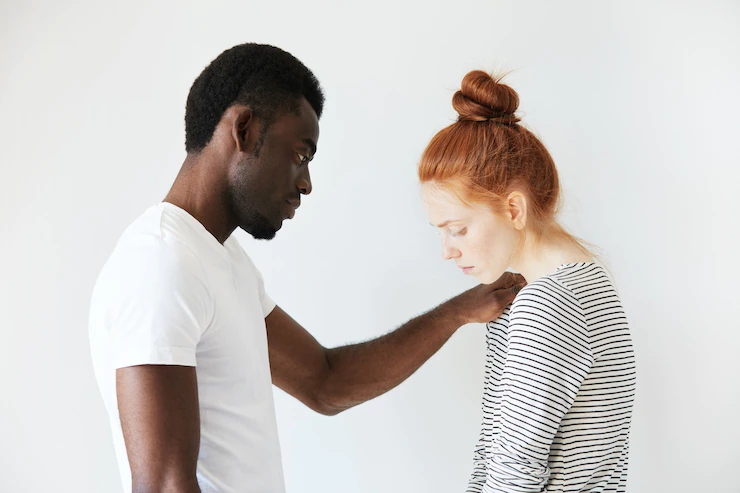
It’s not uncommon for someone to find themselves facing domestic violence charges. This is especially the case when the defendant has been involved in a violent relationship or is a victim of abuse.
However, in certain cases, the person’s conduct may not constitute a violent attack and can still result in charges. There are various reasons why this happens.
California
If you have been accused of domestic violence, you will need to know your legal rights. There are a number of ways you can fight the charges. You should also seek advice from a qualified attorney.
In California, domestic violence is a criminal offense that can lead to severe consequences. These can include jail time, fines, probation, and counseling. The penalties depend on the specific charges, alleged victim, and defendant’s criminal history.
Depending on the nature of the alleged act, a defendant may be charged with a misdemeanor or felony domestic violence. Felonies are the most serious offenses and can lead to a lengthy state prison sentence.
Defendants who are accused of a domestic violence crime can seek help from a lawyer who specializes in domestic abuse. They can be able to build a solid defense by showing the defendant’s self-defense. Providing details about the alleged event will help to lower the penalty.
There are a number of reasons prosecutors may decide to drop DV charges. First, the alleged victim may change their mind. For example, the alleged victim may decide to stop making accusations of violence. However, the victim’s decision does not mean that the charges are dropped.
In addition, there may be a lack of evidence for the prosecutor to consider. This means that the prosecutors must look for other evidence or find a way to prove that the charges are not justified.
Generally, the prosecutor must think that dropping the charges is beneficial for the state of California and the people involved. He or she will only do so if there is sufficient doubt cast on the victim’s allegations.
A number of prosecuting authorities in California have adopted a “no drop” policy for domestic violence cases. This is because prosecutors want to ensure that the case is given the best possible outcome for the state.
In order to successfully defend against these charges, a defendant needs to show that he or she did not commit any of the alleged acts. Also, a defendant’s legal counsel can help the defendant reveal any false claims.
New York
If you are accused of domestic violence, you must know how to defend yourself. You should hire a criminal defense attorney for help. These lawyers can protect you throughout the entire process. They are experienced in speeding up the legal process and understand how to protect you from unnecessary charges.
In New York, a person who is accused of abuse can expect to face serious penalties. This includes up to 25 years in prison. Additionally, you may lose your home, your job, and even your passport.
Assault is the most common charge. It is the act of physically touching another, causing pain and discomfort. There are many different ways to do this. The key to successful assault charges is to prove that the person contacted the victim in a violent way.
Other types of domestic violence include stalking, harassment, and financial exploitation. Some cases have been fatal.
If you are charged with a domestic violence crime in New York, you should always have the right to legal representation. Contact a New York Domestic Violence Lawyer. Professional legal representation is available for clients of all ages, races, and socioeconomic statuses.
The police have a duty to investigate any allegations of domestic violence. During this process, they must determine whether or not there are any facts to support the charge.
The police must also make an arrest if there is enough evidence to show that the alleged abuser committed a crime. Even if the accuser retracts the charges, you must appear in court.
A temporary restraining order is often used to protect victims of domestic violence. Usually, a TRO lasts for one year. However, it can be made permanent. Depending on the judge’s decision, the TRO can also affect child custody agreements.
Whether you are the accused or the victim, it is important to get the help of a skilled New York Domestic Violence Lawyer. Whether you are accused of domestic assault, harassment, or stalking, it is crucial that you take action immediately. With professional legal representation, you can fight your charges before they reach the trial stage.
Self-Defense in domestic violence cases

If you are charged with a crime, such as domestic violence, you may be able to defend yourself with a self-defense claim. However, it can be a difficult case to win in court. You need to have a skilled lawyer to help you get through it.
The first step is to prove that you believed you were in danger. This requires objective evidence. In some cases, you can bolster your self-defense case by presenting evidence of previous bad acts or threatening emails or text messages.
A person who is convicted of a domestic violence offense can be sentenced to up to ten years in prison. Some states have special rules governing self-defense in these situations. These rules are different in each state.
Self-defense claims are generally based on the idea that a person who is facing an imminent danger is justified in using reasonable force to avoid or stop the threat. But there is a difference between an imminent threat and one that is ongoing. For instance, a woman who has been threatened with an assault by her husband might be justified in defending herself.
Similarly, a man who has been a frequent aggressor may be acting in self-defense. Even if you were not the original aggressor, it is still important to show that you acted in a reasonable way.
There are also other factors that may affect your ability to make a successful self-defense claim. These factors include your past injuries, whether your partner has made a threat in the past, and the dynamics of your relationship.
A skilled attorney can make all the right moves to help you succeed. They can investigate the facts, listen to your side of the story, and expose any flaws in the prosecutor’s case. It is crucial to hire a qualified legal counsel if you have been accused of a domestic violence offense.
A good defense lawyer will know how to present the facts to convince a jury that you did not act in self-defense. Depending on the circumstances, you may have to testify in court.
Aggravating circumstances in a domestic violence case
Aggravating circumstances in a domestic violence case are factors that increase the severity of the crime. They include prior convictions, gang affiliation, and the nature of the relationship between the victim and the defendant. These circumstances are usually added to the penalties for a criminal act in order to increase the punishment.
The prosecutor or defense attorney introduces evidence of these aggravating factors during the trial. A judge then weighs all of the information and decides on a sentence. For instance, if a person is charged with aggravated assault, a judge may choose to impose a harsher penalty, such as a prison sentence, based on the severity of the injuries the victim suffered.
Another example of an aggravating circumstance in a domestic violence case is the presence of a child. In some states, a child who witnesses domestic violence is considered to be a protected child.
Additionally, in some states, a child who is physically related by blood to a person who lives in the same household as the defendant is treated as an additional aggravating factor. This is not a rule, however. There are other aggravating circumstances, and you should discuss them with a qualified lawyer.
If you are accused of committing aggravated assault or another type of domestic violence, you should consider talking to an experienced Mesa domestic violence attorney. With a strong legal defense, you can avoid jail time and other penalties.
Before going to court, you should consult a lawyer about potential aggravating and mitigating circumstances in your case. An experienced attorney will be able to determine whether these factors apply and can use them to your advantage.
Domestic violence is a complex area of law, and a good lawyer can help you avoid jail time and other serious consequences. You should speak to an experienced attorney before your case goes to trial. Defending yourself in a domestic violence case is important, so you should consult a knowledgeable lawyer before the case goes to court.
Unlike other criminal cases, enhancements and aggravating factors do not automatically apply to a domestic violence case. Each state has its own rules regarding the addition of these aggravating and mitigating factors.
Read Also:


